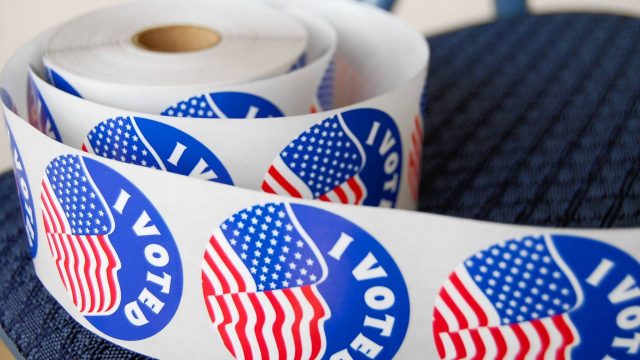Blame Irresponsible College Students, Not The Voter ID Law

In an editorial today the Grand Forks Herald takes aim at those opposing legislation to allow student ID cards as valid residency verification for voting.
“The Legislature’s 2013 Voter ID law — which passed both Houses on almost entirely party-line votes; on election issues, that’s a frantically waving red flag — had the very effect critics had predicted,” opinion editor Tom Dennis writes on behalf of the Herald. “It suppressed votes among Democratic-leaning populations, notably college students.”
[mks_pullquote align=”right” width=”300″ size=”24″ bg_color=”#000000″ txt_color=”#ffffff”]To the extent that voting requirements can be confusing, the answer is to set one uniform set of requirements for all voters and stick do it. This constant meddling with our voting requirements is part of the problem.[/mks_pullquote]
That’s an argument that’s a little hard to buy. Dennis cites a recent North Dakota University System survey as evidence for his claims, but my take on that survey is that the voting problems among students were very limited in scope, which is encouraging given that this was the first election cycle under the new requirements.
According to the survey, 3.8 percent of students didn’t vote because they flubbed their absentee ballot or showed up at the wrong place/wrong day. A total of 3.2 percent of students had problems with their residency, but that’s not necessarily related to the voter ID issue. If a student isn’t a qualified resident (because they, say, live in Minnesota but attend classes in North Dakota) then they shouldn’t be voting.
“Extrapolating the results of this survey to the general population indicates that 689 students were unable to vote due to residency issues,” states the survey (that’s also quoted by Dennis at the Herald), but again how many of the residency issues were ID related and how many were students who just weren’t qualified to vote where they attempted to vote?
I’m hardly the only one who sees the relatively few problems students had with voting as a non-issue. The reliably left-wing Fargo Forum agrees, issuing a “leafy spurge” to those crying foul over the policies.
“First, it is curious that allegedly bright college students would be confused by relatively easy-to-understand residency requirements,” writes the Forum. “Second, the survey sample itself raises questions about extrapolating the findings into anything of significance. Third, the survey, whether flawed or not, suggests voters must exercise a measure of personal responsibility in the voting process.”
To the extent that voting requirements can be confusing, the answer is to set one uniform set of requirements for all voters and stick do it. This constant meddling with our voting requirements is part of the problem.




